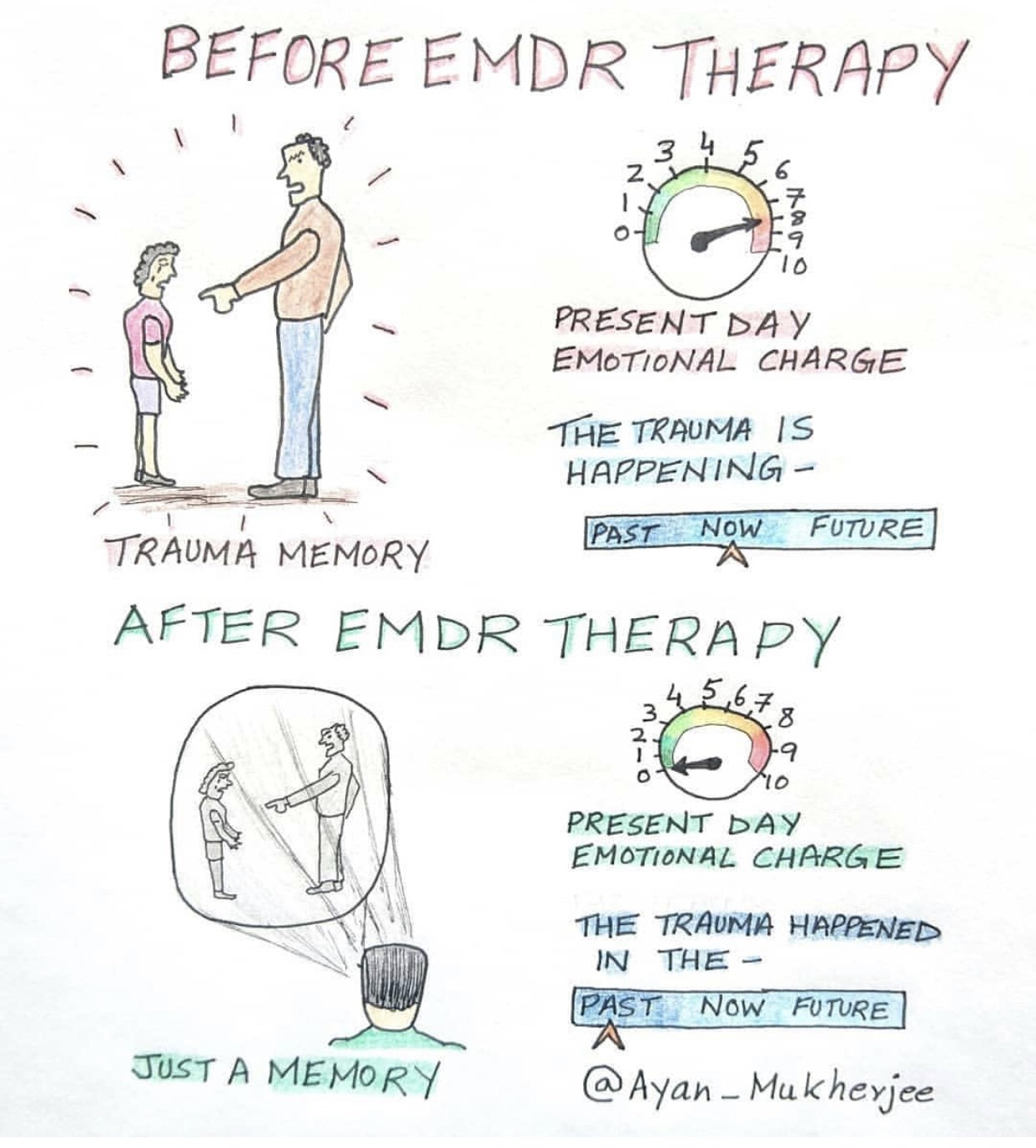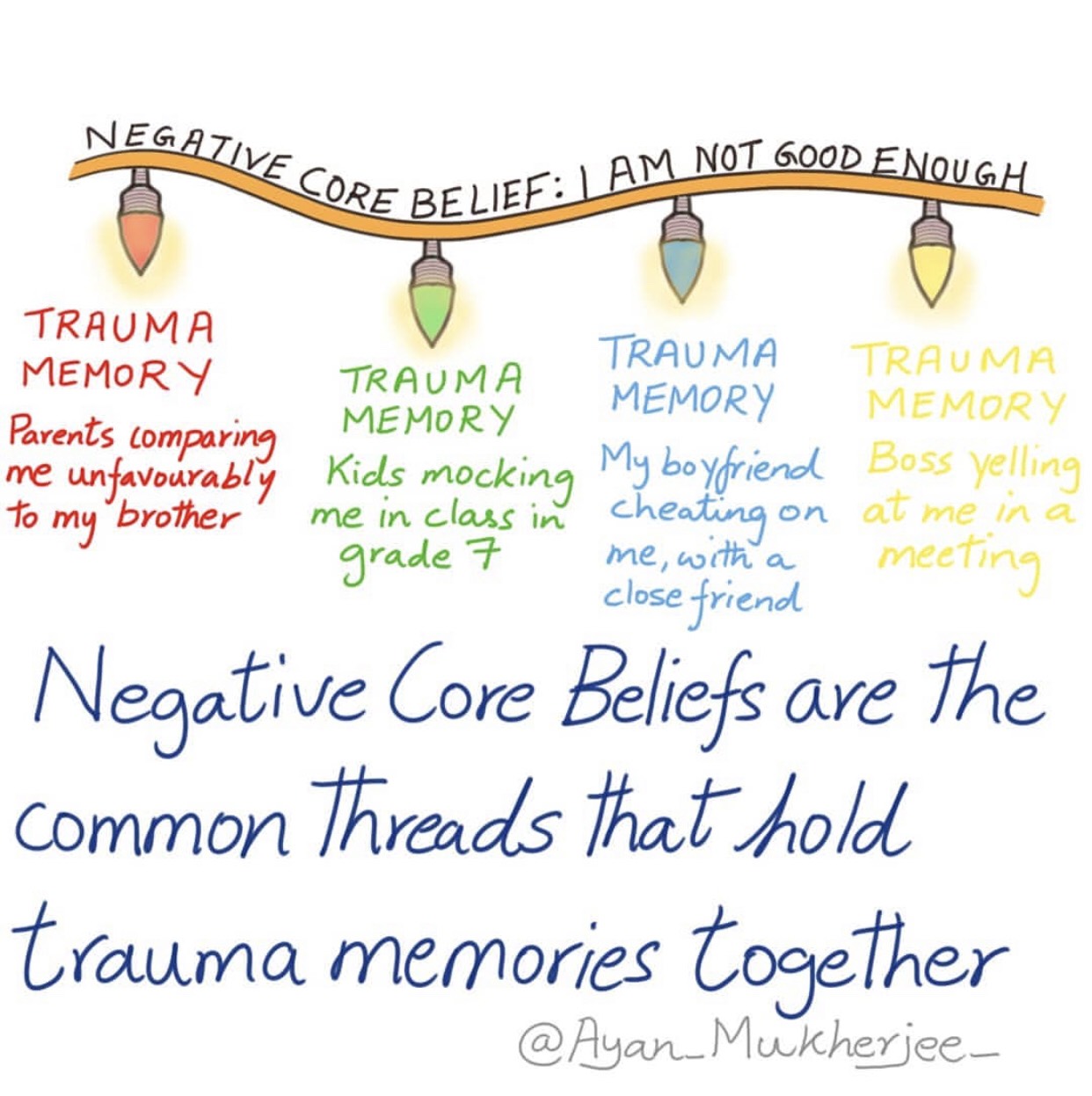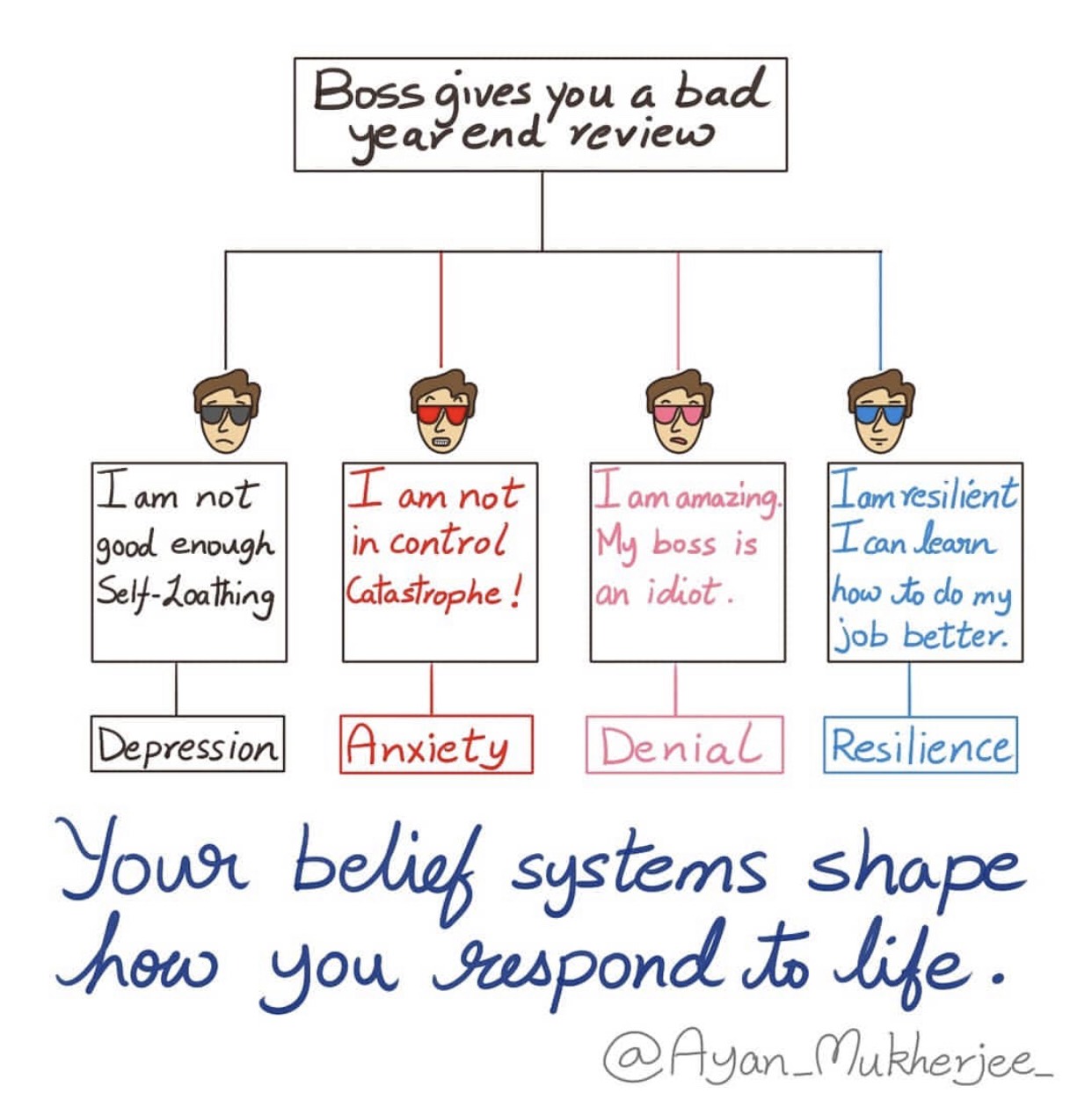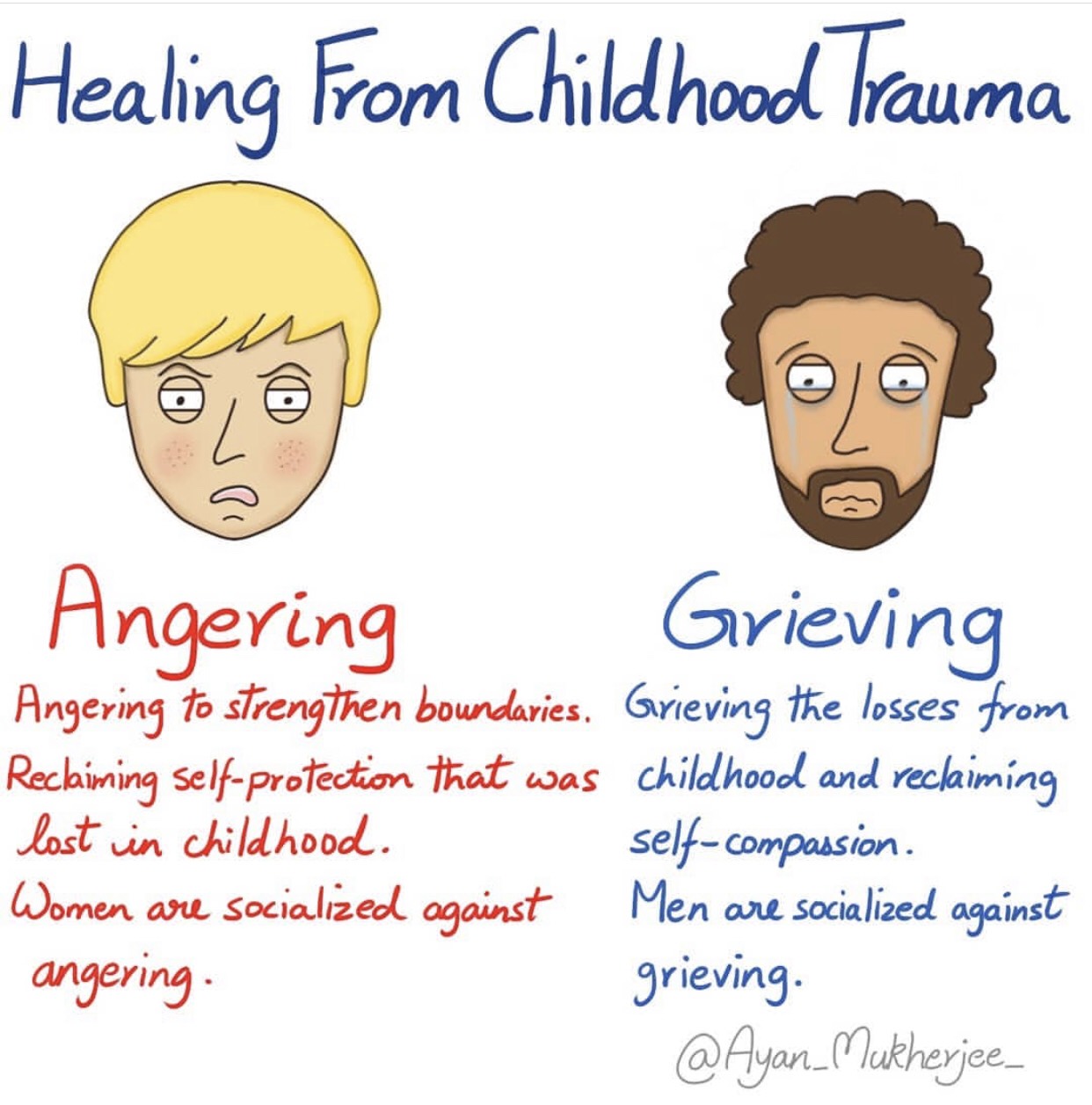About EMDR



EMDR (Eye Movement Desensitization and Reprocessing) is a method of psychotherapy that facilitates deep healing from the symptoms of emotional distress (physical and mental) resulting from disturbing life events and experiences.
It is widely assumed that severe emotional pain requires a long time to heal. EMDR therapy shows that the mind can in fact heal from psychological trauma much as the body recovers from physical trauma. When you cut your hand, your body works to close the wound. If a foreign object or repeated injury irritates the wound, it festers and causes pain. Once the block is removed, healing resumes. EMDR therapy demonstrates that a similar sequence of events occurs with mental processes. The brain’s information processing system naturally moves toward mental health. If the system is blocked or imbalanced by the impact of a disturbing event, the emotional wound festers and can cause intense suffering. Once the block is removed, healing resumes. Using the detailed protocols and procedures learned in EMDR therapy training sessions, clinicians help clients activate their natural healing processes.
EMDR therapy involves attention to three time periods: the past, present, and future. Focus is given to past disturbing memories and related events. Also, it is given to current situations that cause distress, and to developing the skills and attitudes needed for positive future actions. With EMDR therapy, these items are addressed using an eight-phase treatment approach.
The above information is from the EMDR Institute. For more information on EMDR, follow the link below.
ART BY EMDR THERAPIST : AYAN MUKHERJEE





